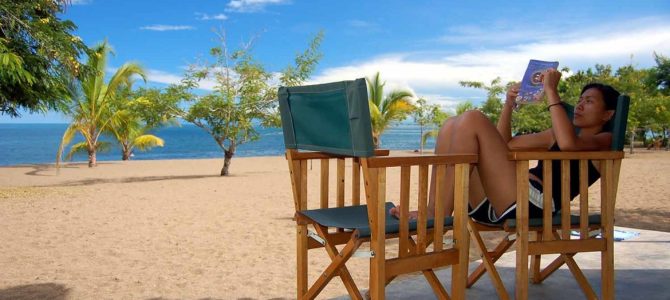
It took a bit of finagling to find a pool and a beach to visit this summer. So many are closed, even in my Midwestern town where the Wuhan flu has infected fewer than 2 percent of residents and is slowing even further. But thanks to some generous friends with a pool and others with a house by a lake, we’ll manage some water play this summer after all.
That plus a new baby in our house requiring lots of sitting around nursing and cuddling has set me up to relax with a few good reads. Here are some of the items I’m working my way through this summer. Please share yours in the comments — I eat books quickly because we don’t watch TV.
‘The Pioneers,’ by David McCullough

Some of the Amazon reviews for this latest bestseller by renowned historian David McCullough made me wary of reading, describing it as disjointed, but they were wrong. This is another fascinating, vivid, and beautifully written account of American history from McCullough that is also easy to read. It kept me company this June while up at all hours with a newborn, and if I can keep track through that anyone can consider this a worthy beach read despite its substantive topic.
“The Pioneers” depicts the opening of my home region, the American Midwest, through perhaps my favorite American “organic document,” the Northwest Ordinance. Created by the same American founders who created the Declaration and U.S. Constitution that neo-Marxists want us now to believe are irredeemably racist, the Northwest Ordinance was the first and chief American document to outlaw slavery, as early as 1787, before the Constitution was even ratified to create today’s Congress.
It was almost single-handedly shepherded into being by a polymath Massachusetts minister with the gloriously Puritan name of Manassah Cutler. Cutler and several distinguished compatriots went on to spearhead the establishment of the first Northwest Territories settlement, along the Ohio River in Marietta, Ohio. His son was later the deciding vote in the state legislature to keep Ohio a free state when it entered the Union, and possibly an engineer on the Underground Railroad.
Marietta’s story is a microcosm of the story of America, and this is another wonderful read from an American treasure.
‘The Art of Roughhousing,’ by Anthony T. DeBenedet and Lawrence J. Cohen
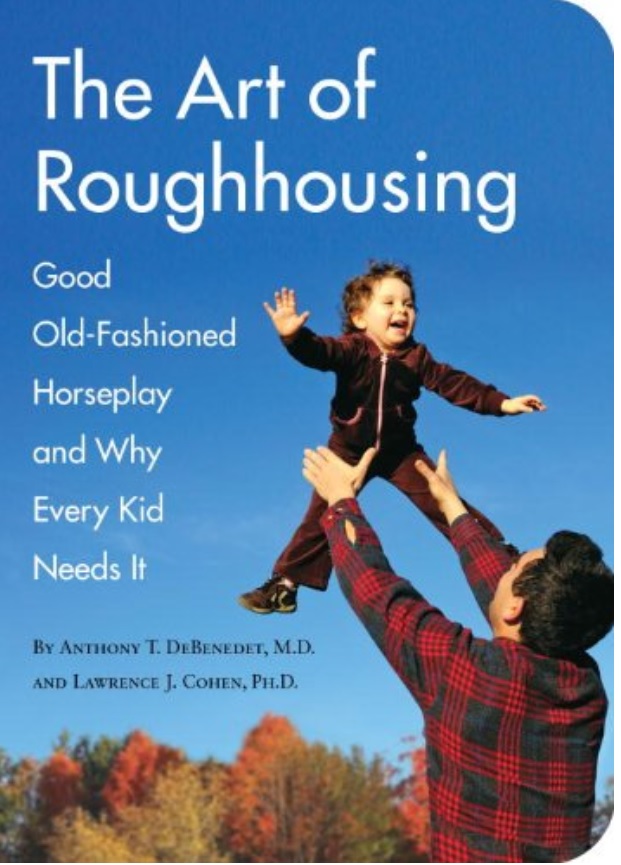
I put “The Art of Roughhousing” on my summer list after seeing it referenced by Screen-Free Parenting, a wonderful resource. I have read several books about the benefits of free play, but not any yet focused on father-style play with children.
As one with any common sense could figure, mothers and fathers offer unique, complementary, and needed things to children, but our culture tends to ignore or scorn the particular contributions of fathers, such as discipline and rough and tumble play. It turns out that roughhousing is extremely good for children. It teaches them boundaries, self-control, respect for authority, and how to have a dang good time. This seems a natural thematic fit for summertime.
‘Kristin Lavransdatter,’ by Sigrid Undset
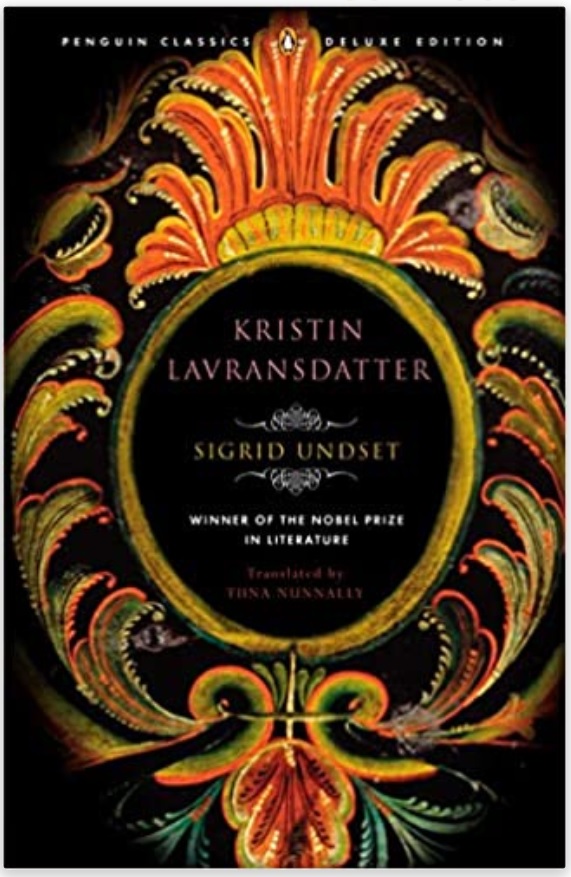
This summer I finally finished this Nobel Prize-winning historical fiction trilogy, by one of the world’s finest authors, after beginning it several years ago. (Two years ago, I discussed the book and my reasons for putting it down with Dr. Anthony Esolen on The Federalist Radio Hour.) Sigrid Undset was the twentieth-century daughter of a medieval historian, and drew upon this knowledge to create a wonderfully lifelike fictional depiction of a 14th-century Norweigan woman from childhood to death.
Because this book is so dramatic, or at least because the decades of high drama between title character Kristin Lavransdatter and her husband made me constantly distraught (SPOILER: He cheats on her repeatedly, an emotionally devastating thing for me to imagine), I had to stop reading it before bed. While I found the book constantly emotionally distressing and was frustrated at Kristin’s lack of personal development over 1,000 pages, the book is hard to put down and its depiction of a culture foreign in time and place and familiar in its illustrations of enduring human nature as engrossing in world creation as the best movies and video games of today.
‘Explorers’ Sketchbooks,’ by Huw Lewis-Jones and Kari Herbert
This book is like having a magazine, history book, and travelogue all in one thick volume. The book selects a few pages from the journals and sketchbooks of numerous world explorers, pairing them with an article-length overview of the explorer’s accomplishments, struggles, and story.
It’s perfect for beautiful but brief episodic reading, an excellent match for my life with a pack of small children and few sustained quiet times. The children like to leaf through it as well. It would also fit people whose attention spans barely match the length of an internet article, which is most of us. If you are journal-obsessed like I am, you will love this book (and might want to check out “The Living Page,” by Laurie Bestvater).
Here’s a peek at some pages and the cover, courtesy of Amazon.
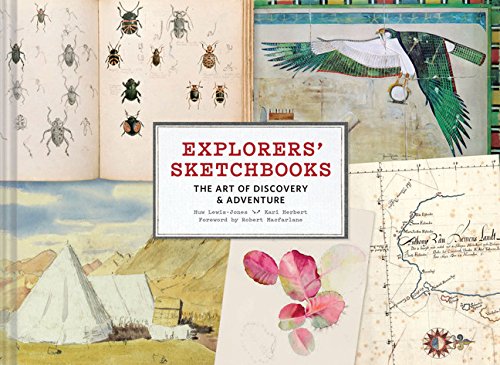
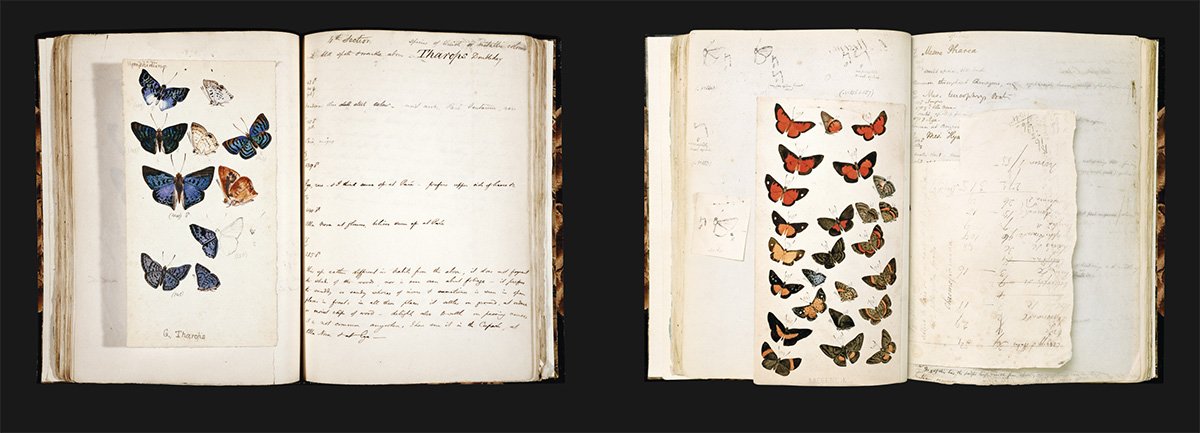
Opening this book is like diving into other worlds. It’s an inspiration to pick up a notebook, or try a little painting or sketching, and an invitation to travel in your imagination while sitting in place, all a perfect match for our currently homebound lives.
‘Seed to Seed,’ by Suzanne Ashworth
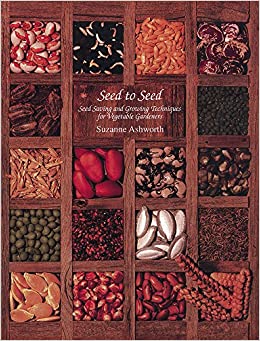
I’m trying to develop my gardening skills a little bit more every summer. I’m just about to harvest some carrot seeds, which requires leaving the carrots in-ground over the winter (or overwintering them in your basement to protect them from rodents, and replanting in the spring), as their seeds are generated biannually.
“Seed to Seed” is the Southern Seed Savers Exchange bible for saving and propagating seeds. I buy heirloom seeds precisely to learn how to save them, and because I love the great variety. SSSE is a long-time well-known source for this kind of seed and a network for people to learn, collect, and trade varieties. I’m not ever going to grow all my own food myself, and I’m certainly not above buying GMO food at the grocery store, but gardening is a hobby I enjoy and doing it with heirloom seeds helps me learn more about creation and participate in it more fully.
‘Bowling Alone,’ by Robert Putnam
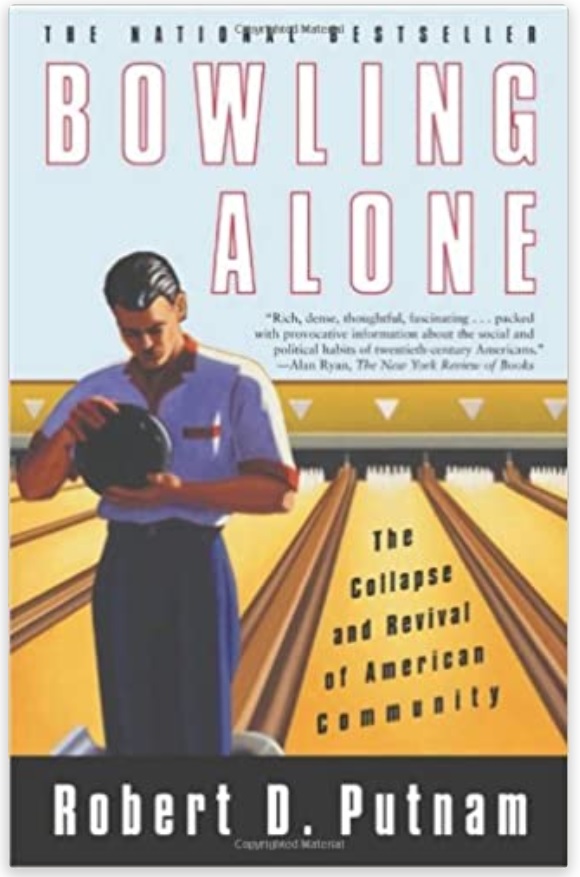
This classic study on American life was published 20 years ago and the trends are still salient. The book provides lots of proof for my formerly secret grudge-thesis that the Baby Boomers have ruined everything. (My husband’s competing, and more controversial, thesis is that the Baby Boomers’ parents — so-called the Greatest Generation — actually deserve this blame because they failed to pass on the moral or civilizational guidance that Boomers and their millennial kids clearly lack and is killing the country.)
Putnam shows Baby Boomers were the turning point for a steep and continuing decline in Americans’ commitment to just about everything besides themselves. He focuses on social capital, or the strength of relationships among citizens that forges social trust, makes us much healthier physically and mentally, and better meets our needs than any commercial substitutes (i.e., grandma watching your child while you work is better for everyone involved than a commercial daycare center doing the same job but with less relational attachment and a lot more expense).
Social investments, from getting together to socialize at people’s homes to membership in philanthropic organizations to playing card games and attending political rallies, have all just jumped off a cliff since the Boomers. As a result, Americans are lonelier, sicker, poorer, and more alienated from each other.
What do Americans do instead with all their time? Well, the richer people work more, the poorer people loaf more, and everyone watches massive amounts of TV and their phones.
“Bowling Alone” remains, 20 years later, a must-read for anyone who cares about this country.
‘Human Diversity,’ by Charles Murray

This book’s description is tantalizing:
The thesis of Human Diversity is that advances in genetics and neuroscience are overthrowing an intellectual orthodoxy that has ruled the social sciences for decades. The core of the orthodoxy consists of three dogmas:
– Gender is a social construct.
– Race is a social construct.
– Class is a function of privilege.
The problem is that all three dogmas are half-truths.
I’ve read every book the famous sociologist Charles Murray has written, so his latest is a must-read for me. Murray has been the target of fake controversy ginned up by the left’s professional agitators, whose claims are ignorant and unfair. Murray is a serious scholar and thinker, and his work will spark many deep thoughts, no matter which you pick up first or how much you end up agreeing with him.
“Human Diversity” is subtitled “The Biology of Gender, Race, and Class,” clearly a topic of public interest and that more people need to be educated about, all the way up to our Supreme Court. I’ve been long curious to know more about the biological differences between men and women, for example, so looking forward to learning more about that in the read.
‘Indistractable,’ Nir Eyal
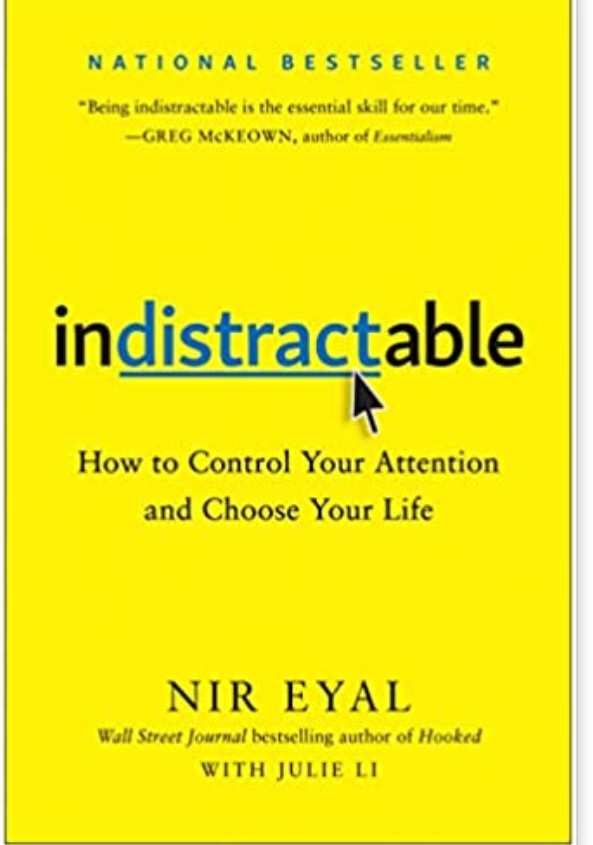
I expected this book to be mostly platitudes, and was surprised to find this succinct read insightful about what drives our tech addictions. Author Nir Eyal formerly worked in video gaming and advertising, using technology to get people addicted to products. Then he began using this expertise to help people control their technology, rather than the other way around, as he does in this book.
Perhaps my favorite insight from this book is that distraction is a surface behavior that indicates some other need or desire — boredom, stress, avoidance, fear, and more. If we pause for a moment to evaluate what is really the root cause of our behavior, Eyal says, we can reduce our addictive tics. In this way, the book essentially guides readers through self-administered therapy for constant distraction. That’s something just about all of us could use.
‘Will Bonsall’s Essential Guide to Radical, Self-Reliant Gardening,’ by Will Bonsall
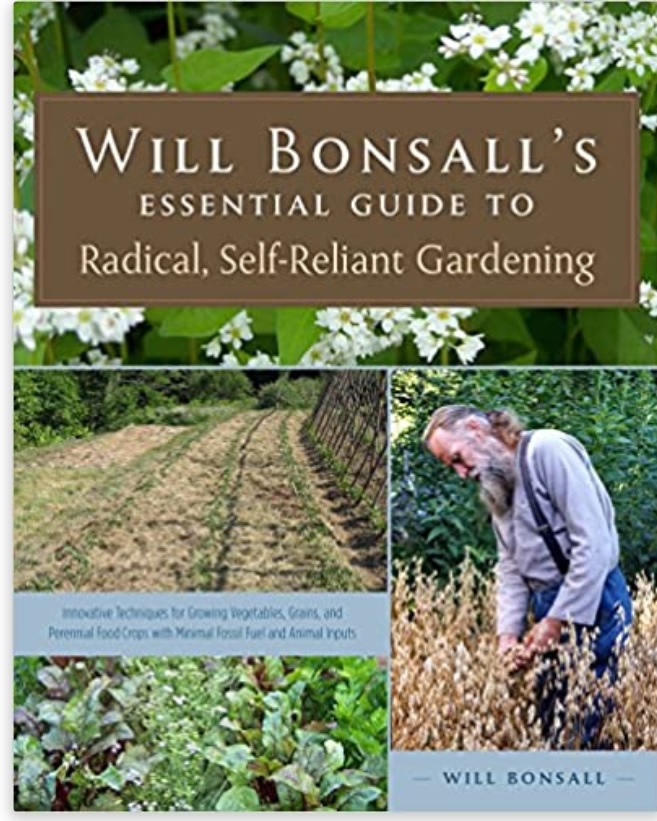
Gracy Olmstead’s wonderful monthly email newsletter, Granola, tipped me off to the existence of Will Bonsall, a Maine gardener and big-time seed-saver with a fascinating backstory you can read about here. After reading the profile, I checked out his book from our local library.
My husband makes fun of the books I read that explain how to compost human poop, and this is one of those. I will not be doing that any time soon, but I did learn several useful and interesting things about what Bonsall calls “plant sex.” Bonsall likes to ramble, and the book has that feel despite receiving professional editing. For a summer read, however, rambling is a great fit for sitting with the baby on the back porch leafing around in a gardening book.
‘Julius Caesar,’ by William Shakespeare

My children finished their school year’s study of ancient history by reading this book with their teachers and classmates via Zoom. So I decided to read it and then talk it over with them, too, as I hadn’t previously read this work. I’m still an act away from finishing this play. I like to read Shakespeare plays more than once — first for plot, then second and following for more attention to language and meaning.
For portable Shakespeare, we like the paperback Folger editions. They’re small enough to tuck into any bag or hand, include a glossary facing each page, and inexpensive. So you can leave the big, beautiful, leather-bound Shakespeare at home for sitting in front of the fireplace in the winter, and take these around to the pool in the summer and not worry if one gets wet.









